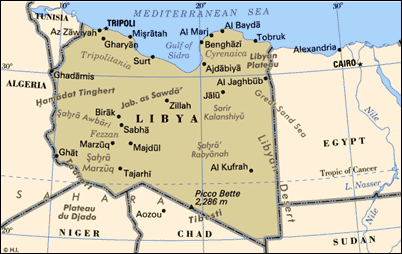Libya arms embargo is a ‘joke’, said a UN envoy. But it’s peace-making that is a farce
 Now that European foreign ministers have agreed on a new Mediterranean naval mission to enforce the widely breached UN arms embargo on Libya, it’s worth thinking what it might really mean. The mission, which will replace Operation Sophia that was derailed last year, is still to be finalised. A senior UN official recently called the Libya arms embargo a “joke”. Add to that the farce that is peace-making efforts.
Now that European foreign ministers have agreed on a new Mediterranean naval mission to enforce the widely breached UN arms embargo on Libya, it’s worth thinking what it might really mean. The mission, which will replace Operation Sophia that was derailed last year, is still to be finalised. A senior UN official recently called the Libya arms embargo a “joke”. Add to that the farce that is peace-making efforts.
Just over a month ago (January 19), German chancellor Angela Merkel secured a hard-won truce between the two rival sides in the Libyan conflict – Fayez Al Sarraj, prime minister of the Government of National Accord; and General Khalifa Haftar. The agreement fell apart almost immediately.
On February 16, the Germans hosted a meeting in Munich to discuss the arms embargo that’s supposed to be in force in Libya. In reality, weapons are pouring into the conflict-scarred country by “land, sea and air”, in the words of UN deputy special envoy Stephanie Williams. And the Munich meeting didn’t even rise to the brief glory of last month’s truce. It was a non-starter for all that it was attended by the foreign ministers from Turkey, Egypt, France and Italy and the European Union’s high representative.
Russian foreign minister Sergei Lavrov didn’t show up and sent a more junior representative. US secretary of state Michael Pompeo didn’t attend either, preferring to send a lowly functionary.
Those absences are troubling. Lavrov’s decision not to attend may be a sign that nothing will change in the short term with respect to Moscow’s support for Haftar. And if Russia is not in the mood to renege on its commitment, it’s hardly likely to seek to persuade the General’s other backers, the UAE and Egypt.
As for the Americans, Mr Pompeo’s non-appearance speaks volumes. The official US position was support for Sarraj and the embattled entity that’s generally described as “internationally recognised”. But, last year, President Donald Trump indicated at one point that he was partial to Haftar, only to drop the General some time later. Subsequently, the Trump administration seemed to withdraw altogether from any particular position on Libya, even to the point of doing nothing when Sarraj’s government pleaded for help to counter Haftar’s forces. America’s supposed non-interference as the UN-backed government in Tripoli struggles, may be decisive or, at the very least, debilitating for Mr Sarraj’s administration.

